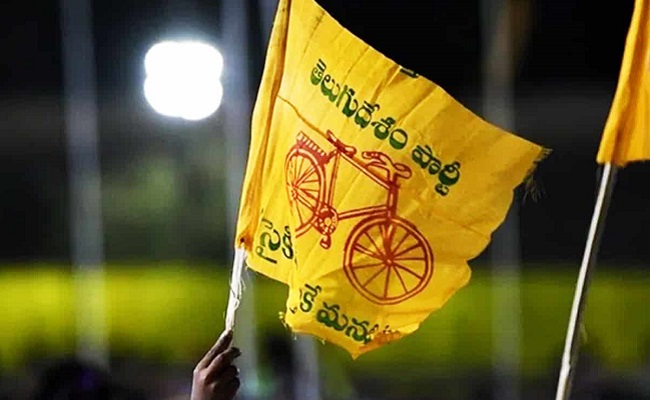
Surprisingly, several officials who faced allegations of corruption and malpractice during the previous YSR Congress Party regime are now allegedly paying off leaders of the ruling Telugu Desam Party — including ministers and MLAs — to escape legal consequences or avoid punishment.
According to media reports, these ruling party leaders are directly interfering in investigations and exerting pressure on higher authorities to drop cases against the accused officials.
Massive corruption was previously reported across departments such as land, roads, mining, municipal administration, surveying and settlement, industries, infrastructure, healthcare, excise, civil supplies, agriculture, and cooperatives.
Since the new coalition government took office, these departments have come under scrutiny, with the Vigilance and Enforcement Department reviewing the pending cases.
It is reported that a senior officer currently serving as a deputy collector had faced multiple corruption allegations during his tenure as a tahsildar.
He was caught by the Anti-Corruption Bureau (ACB) with unaccounted cash and assets disproportionate to his known sources of income.
When the ACB sought prosecution approval, a minister reportedly intervened, recommending a mere departmental inquiry to ensure the officer received only a minor penalty. An official letter was even issued to that effect.
During the YSRCP tenure, many officials caught red-handed or found guilty during investigations are now being shielded by political leaders from prosecution.
From deputy collectors to village-level revenue officers, and mining surveyors to district-level officials, 32 names have been submitted by the ACB for prosecution.
The ACB only seeks prosecution permission after verifying concrete evidence and concluding that a court trial is warranted. However, the accused officials are reportedly using political connections to evade justice.
Several ministers, influential MLAs, and MLCs are allegedly helping them settle matters quietly. At least six ministers have directly intervened so far, while many other lawmakers are also said to be involved.
These "recommendation letters" have reportedly become a source of revenue for some public representatives.
In one case, a minister from North Andhra intervened on behalf of a mandal-level revenue officer, writing a two-page letter earlier this year to revoke the officer’s dismissal and reinstate him to a favorable post.
The same minister defended a municipal officer accused of serious corruption during the YSRCP regime, claiming the officer was so honest he “didn’t even understand what corruption meant.”
Another minister from Coastal Andhra reportedly formed a special team to manage ACB and Vigilance cases. He appointed three retired officials to review petitions submitted to him and is allegedly “settling” high-value cases through backdoor deals.
Meanwhile, a ruling party MLC from Rayalaseema is reportedly defending a surveyor from the same region who was caught in a major corruption case.
Despite a prosecution recommendation from the ACB Chief, the MLC wrote to the government in January opposing it, alleging flaws in the investigation and praising the officer’s character.
This same MLC had earlier intimidated mining contractors using similar tactics and only backed off after receiving warnings from the party’s high command.
A former minister, now an MLA from Coastal Andhra, is notorious for demanding bribes in exchange for favors — ranging from Tirumala darshan letters to protecting officials accused in ACB cases.
He reportedly wrote four letters (one last year and three in February) urging the reversal of disciplinary action against two Tahsildars, even threatening public protests if his requests were not accepted.














